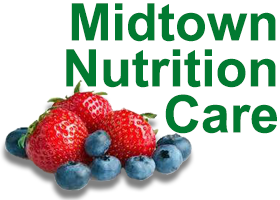DIGESTIVE DISCOMFORT
Here are some tips to handle gas, bloating or irregularity.
HYDRATION
Drink 8 cups of liquid per day. Inadequate hydration slows digestion and may cause harder stools. Water helps to dissolve fats and soluble fiber, allowing these substances to move through the digestive system more easily. You can flavor water to make it more appealing. Try squeezing some lemon or lime, or cut up fresh fruit and place it in the bottom of a water pitcher for natural flavors.
FIBER
Fiber helps everything move through your intestines, which decreases constipation. The daily goal is 25 grams for women and 38 grams for men. The goal for children is their age plus 5 grams. Good sources of fiber are whole grain cereals and breads, oatmeal, wheat pasta, brown rice, beans, corn, sweet potato with skin, fruits, vegetables, flax, chia and hemp seeds. A food is considered a fiber food if it contains 3 grams or more per serving.
LACTOSE
Lactose is the sugar found in milk products. Some people experience gas and bloating if they are lactose intolerant. If you have difficulty digesting lactose, good substitutes include Lactaid Milk, Soy, Almond, Coconut, Rice and Flax Milk.
PROBIOTICS AND PREBIOTICS
Probiotics are the live, healthy bacteria found in dairy and soy-based yogurts, kefir and fermented foods (Kimchi and kombucha). These healthy bacteria colonize in our intestines and help prevent the overproduction of harmful bacteria. Prebiotics are indigestible food ingredients that stimulate the growth of healthy bacteria. Prebiotic sources are inulin and oligosaccharides, which can be found in hickory root, raw garlic, raw onions, soybeans, asparagus, leeks, bananas and artichokes.
REGULARLY SPACED LOW FAT MEALS
Eating smaller more frequent meals decreases heartburn. Choose whole grains, fruits, vegetables and lean protein. Avoid processed and fast foods as much as possible. Fatty and greasy foods can stimulate contractions in the colon causing cramping, diarrhea and urgency. Make sure to chew your food thoroughly, eat slowly in a relaxed atmosphere. Eating too much too fast can contribute to digestive discomfort.
CAFFEINE AND SUGAR ALCOHOLS
These ingredients may cause digestive discomfort. Caffeinated beverages are mostly found in coffee, tea and some soft drinks. Sugar alcohols are mostly found in sugar free foods and chewing gum. Sugar alcohols are listed as sorbitol, mannitol and xylitol on the food label.
FOOD DIARY
To help identify the source of your discomfort, it is often helpful to keep a detailed food and symptom diary.
